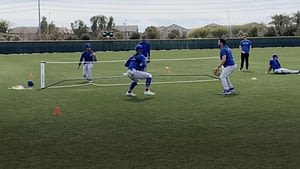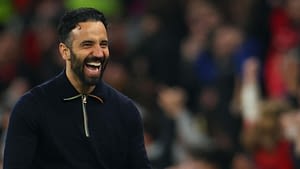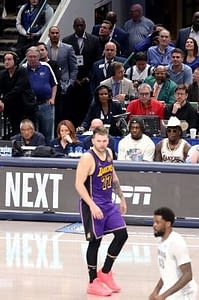From the Pitch to Politics: Mikheil Kavelashvili Becomes Georgia’s President
In a story that feels like it was pulled straight from a Hollywood script, former Manchester City player Mikheil Kavelashvili has traded in his cleats for a presidential sash. On Saturday, the 53-year-old was officially named the president of Georgia, marking a dramatic career pivot for the ex-footballer. But this wasn’t your typical election—far from it.
Kavelashvili was the sole candidate on the ballot, a fact that raised eyebrows both domestically and internationally. His victory was all but guaranteed, thanks to the ruling Georgian Dream party’s firm grip on the 300-seat electoral college. This body, which replaced direct presidential elections back in 2017, is composed of members of Parliament, municipal councils, and regional legislatures. With Georgian Dream dominating the political landscape, Kavelashvili’s path to the presidency was essentially a foregone conclusion.
Georgian Dream’s Political Stronghold
To understand how Kavelashvili ended up in the president’s chair, you have to look at the broader political context in Georgia. The Georgian Dream party has been the dominant force in the South Caucasus nation’s politics for years. They solidified their control of Parliament in an election held on Oct. 26, 2024. However, that election was not without controversy.
Georgia’s outgoing president, along with the country’s main pro-Western opposition parties, has refused to accept the results. They’ve boycotted parliamentary sessions and are demanding a rerun of the election, alleging that it was rigged with the help of Russia. These accusations have cast a shadow over Kavelashvili’s presidency, even before he’s had a chance to settle into his new role.
Balancing EU Aspirations and Russian Relations
One of the most pressing questions facing Kavelashvili’s administration is how Georgia will navigate its foreign policy. The Georgian Dream party has pledged to continue pushing for EU accession, a goal that resonates with many Georgians who see their future aligned with Europe. However, the party has also expressed a desire to “reset” relations with Russia—a move that has sparked concern among pro-Western factions in the country.
Georgia’s relationship with Russia is complicated, to say the least. In 2008, the two countries fought a brief but intense war. The conflict ended with Russia recognizing two breakaway regions, South Ossetia and Abkhazia, as independent states. Since then, Moscow has increased its military presence in these areas, further straining relations between the two nations. How Kavelashvili plans to balance these competing priorities remains to be seen, but it’s clear that his presidency will be closely watched both at home and abroad.
From Football Star to Political Leader
For those who followed Kavelashvili’s football career, his rise to the presidency might come as a surprise. He played for Manchester City during the 1990s, a period when the club was far from the global powerhouse it is today. While he may not have been a household name in the football world, his transition from sports to politics is a testament to his ability to reinvent himself.
It’s not every day that a former professional athlete steps into the highest office of a country. Kavelashvili’s unique background could bring a fresh perspective to Georgian politics, but it also raises questions about his qualifications and ability to navigate the complex challenges facing the nation. Will his experience on the pitch translate to success in the political arena? Only time will tell.
Key Takeaways
- Mikheil Kavelashvili, a former Manchester City player, has been named the president of Georgia.
- He was the only candidate on the ballot, backed by the ruling Georgian Dream party.
- The Georgian Dream party controls a 300-seat electoral college, which replaced direct presidential elections in 2017.
- Georgia’s outgoing president and pro-Western opposition parties have boycotted parliamentary sessions, alleging election interference by Russia.
- Kavelashvili’s administration will need to balance Georgia’s EU aspirations with its complicated relationship with Russia.
As Kavelashvili steps into his new role, the world will be watching to see how this former footballer handles the pressures of political leadership. Will he score a victory for Georgia, or will his presidency be marred by controversy and division? One thing is certain: his journey from the pitch to the presidency is a story for the ages.
Originally Written by: Associated Press





















